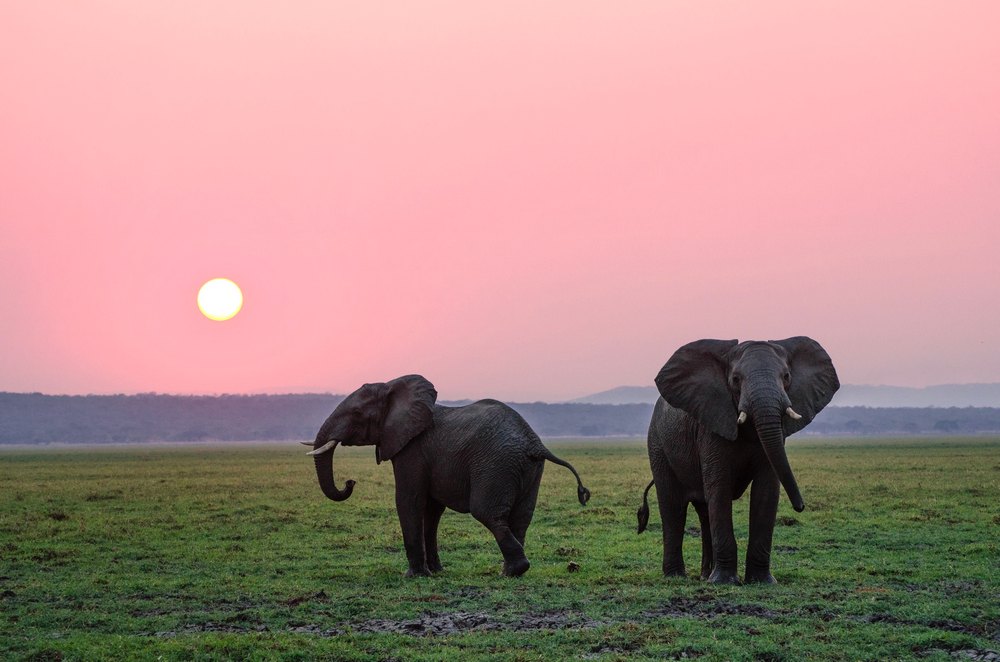The African elephant is the world’s largest land mammal – with males on average measuring up to 3m high and weighing up to 6 tonnes. Males only reach their full size at 35-40 years – that’s well over half their lifespan as wild elephants can live for up to 60-70 years.
There are two species of elephant: African and Asian. The ears of African elephants are much larger than their cousins and are described as being shaped like the African continent, whereas the ears of Asian elephants are shaped like the Indian subcontinent.
Elephants are pregnant for a long 22 months. Longer than any other animal. At birth, baby elephants weigh 210 lbs (or 95kg).

Elephants spend up to 16 hours foraging every day. Only 2-3 hours are spent sleeping.
An astonishing is the discovery that elephants may be able to sense these vibrations through their feet and interpret them as warning signals of distant danger.
“Elephants may be able to detect stress from a herd many miles away,” says Caitlin O’Connell-Rodwell, an affiliate of the Stanford Center for Conservation Biology and a postdoctoral fellow in the Department of Pediatrics.
“They may be communicating at much farther distances than we thought,” adds O’Connell-Rodwell, author of the JASA study.
Interesting longevity-associated facts about elephants
Elephants are known for their impressive longevity and have several interesting facts associated with their lifespan:
Long lifespan
Elephants are among the longest-living mammals on Earth. On average, elephants live for about 60 to 70 years in the wild, although some individuals have been known to live into their 80s or even 90s.
Age estimation
Determining the exact age of an elephant in the wild can be challenging. Researchers often rely on observing specific physical characteristics, such as the size and shape of the tusks, to estimate an elephant’s age.
Social structures
Elephants are highly social animals and live in complex family structures called herds. Within these herds, older female elephants, known as matriarchs, play a crucial role in leading the group and sharing their knowledge and wisdom based on their long life experiences.
Post-reproductive period
Female elephants typically reach sexual maturity in their teenage years and can continue to bear offspring until they reach their 50s or 60s. Interestingly, female elephants can also experience a post-reproductive period where they no longer give birth but continue to contribute to the herd’s social dynamics and care for younger members.
Lifelong learning
Elephants exhibit high levels of intelligence and have remarkable memory capabilities. Older elephants pass on knowledge and survival skills to younger generations, such as information about finding water sources or recognizing potential threats.
Stress resistance
Elephants possess certain biological mechanisms that contribute to their longevity. They have a lower risk of developing cancer compared to humans, and their DNA repair mechanisms are more efficient, which helps protect against age-related diseases.
Environmental factors
Environmental conditions can influence an elephant’s lifespan. Factors such as access to food, water, and suitable habitat, as well as the absence of human-related conflicts and poaching, play crucial roles in determining the overall well-being and longevity of elephant populations.
The impressive longevity of elephants underscores the importance of conservation efforts to protect these magnificent creatures and ensure their survival for future generations.
